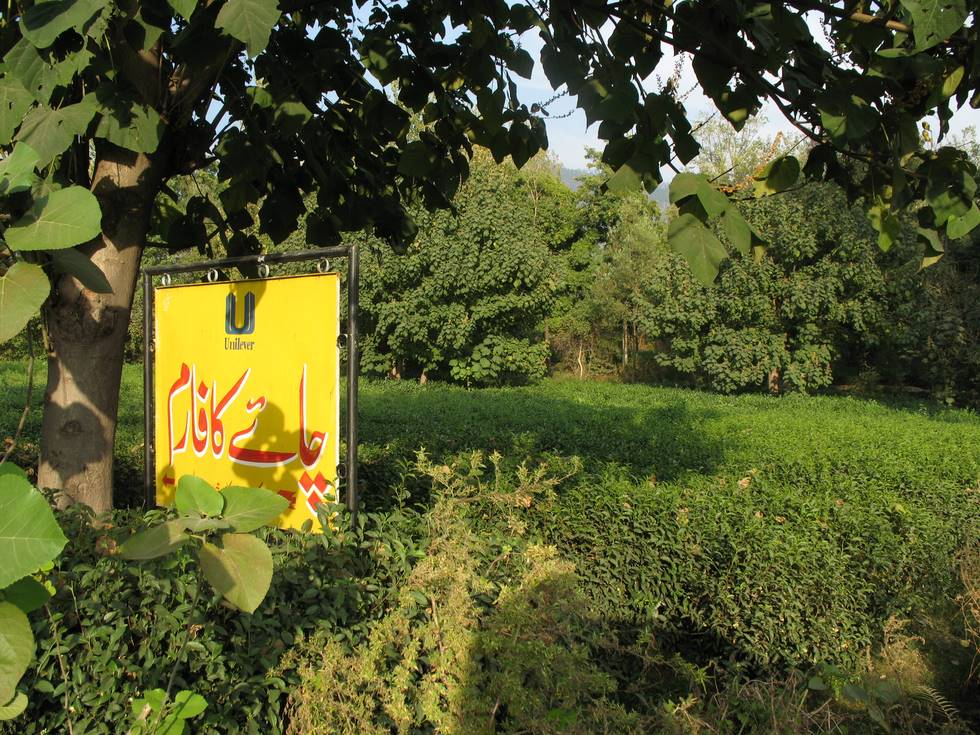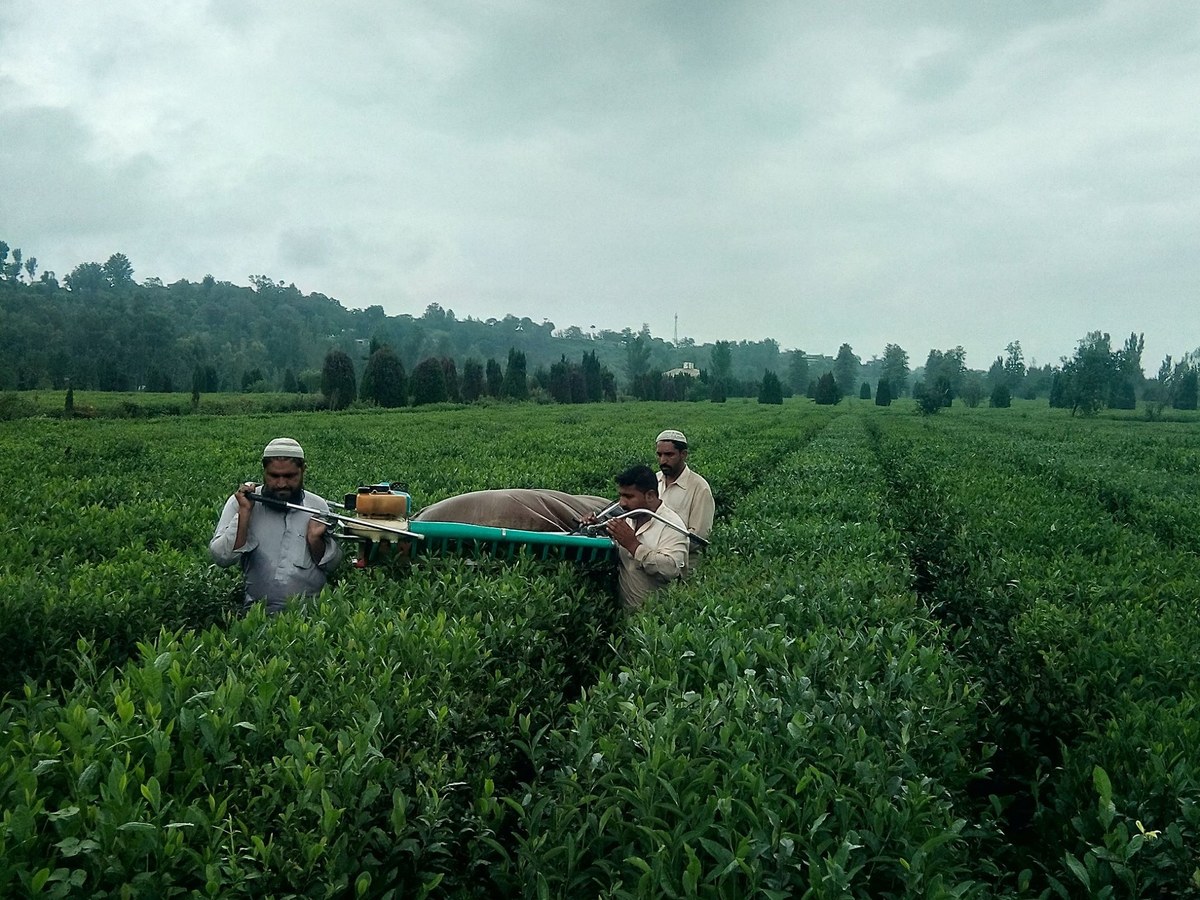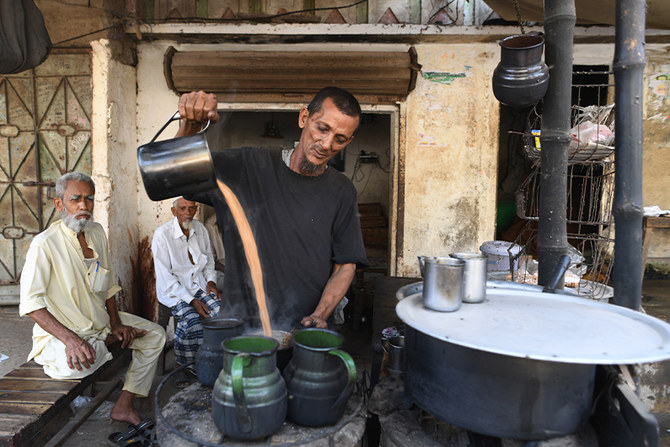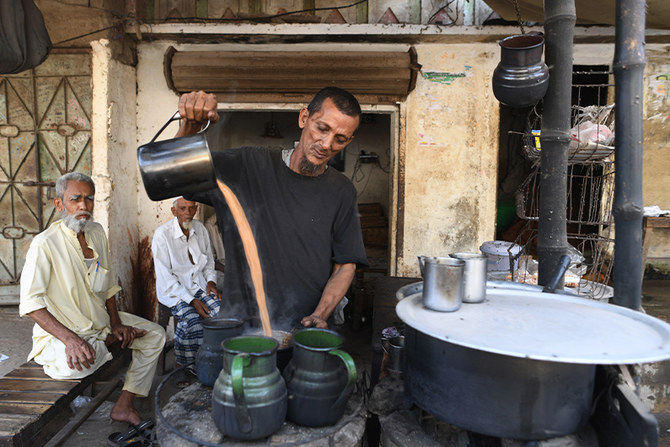KARACHI: Tea-thirsty Pakistan is looking to reduce its dependency on the import of the country’s favorite drink, and successful research and experiments with tea plantations in the northwest have proven that it is possible to drastically increase local production, officials and tea traders told Arab News on Thursday.
Consumption per second of tea in Pakistan is estimated at 3,000 cups, according to Dr. Abdul Waheed, director National Tea and High Value Crops Research Institute. With an estimated annual per capita consumption of more than 1 kg, Pakistan remains among the largest importers of tea in the world.
Black tea is imported from 19 different countries, with the largest chunk-- 80 percent-- from Kenya. The country also imports a substantial chunk of green tea from China, Vietnam and Indonesia.
“We have done some research to increase local production of tea in the country and reduce its dependence on imports,” Dr.Waheed told Arab News. “Successful tea plantation was demonstrated at the institute along with a few fields in potential tea growing areas of Khyber Pakhtunkhwa and Azad Kashmir.”
“The results,” he continued, “are very encouraging. We have developed about 12 varieties of tea through local planation in Khyber Pakhtunkhwa’s Shinkiari town [in Mansehra district]. The yield potential and quality has been assessed to determine its economic viability. We have also identified the extent of the plantation area.”
Over the next 20 years, Pakistan hopes to substitute about 70 percent of imported tea with locally produced brands.

In this undated photo, a tea garden is shown in Mansehra Pakistan. (Photo courtesy: social Media)
The country imported 25,709 tons of tea in the last month which cost it $59.68 million.
According to the Pakistan Bureau of Statistics, the country spent $533 million to import 221,319 tons of tea during the current fiscal year between July 2020 and April 2021.
Pakistan has identified about 64,000 hectares of land in Mansehra and Swat to grow tea. It earmarked the area after a comprehensive evaluation of topological, soil and climate data.
Pakistani tea importers say local tea production is currently too low in the country to substitute imports in any major way.

Harvesters pluck tea leaves through a machine in Shinkiari, Pakistan on July 23, 2018. (Photo courtesy: Social media)
“The local production is very low, and it can’t instantly substitute our imports,” Muhammad Aman Paracha, chairman Pakistan Tea Association, told Arab News.
“But its price will decline if the tea production area is increased. Local production will also help the country save foreign exchange. Apart from that, tea importers are currently paying about 53 percent taxes which will be reduced.”
Tea importers say the government needs to think long-term in order to attract investment for local production of the commodity.
“The government must resolve issues related to land acquisition, remove hurdles that are likely to be created by local residents in the identified areas, allow duty-free import of machinery and give required subsidies,” Zeeshan Maqsood, who deals with tea trade at the Federation of Pakistan Chambers of Commerce and Industry, told Arab News.
“This needs a long-term vision, at least until 2040, since tea plants can take up to 10 years to grow,” he continued. “If all things go well, the country may be in a position to replace about 70 percent of its imports in a 20-year period.”
Stakeholders said that ultimately, local production of tea could earn precious foreign exchange if the country managed to make enough to sell some of its indigenous brands abroad.
















